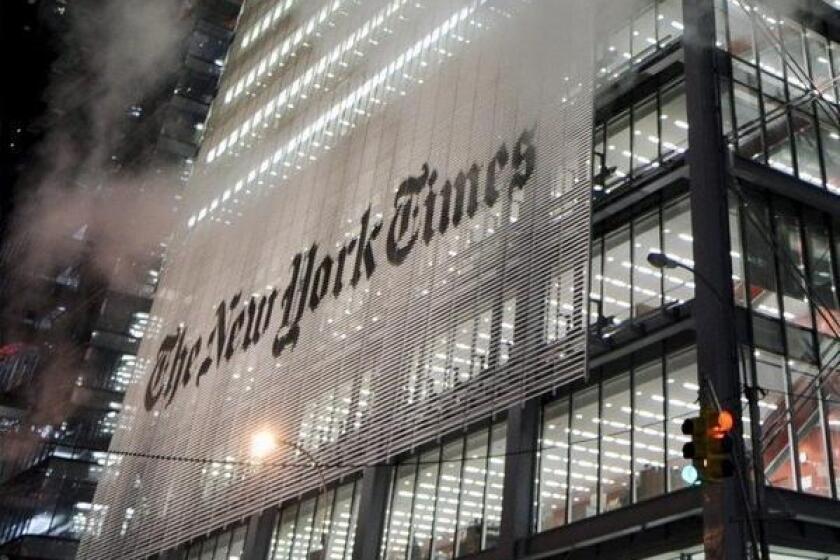Celebrities are standing with GLAAD in protest of New York Times’ trans coverage

- Share via
Judd Apatow, Margaret Cho, Wilson Cruz, Tommy Dorfman, Lena Dunham, Jameela Jamil, Gabrielle Union-Wade and Jonathan Van Ness are among the celebrities who have signed an open letter from GLAAD to the New York Times criticizing what the LGBTQ+ advocacy group isays is “irresponsible, biased coverage of transgender people.”
“It is appalling that the Times would dedicate so many resources and pages to platforming the voices of extremist anti-LGBTQ activists who have built their careers on denigrating and dehumanizing LGBTQ people, especially transgender people,” says the letter, delivered Wednesday.
“While there have been a few fair stories, mostly human interest stories, those articles are not getting front-page placement or sent to app users via push notification like the irresponsible pieces are.”
‘Harry Potter’ author J.K. Rowling is speaking out in a new podcast, ‘The Witch Trials of J.K. Rowling,’ saying she ‘never set out to upset anyone.’
While Cruz retweeted a Hollywood Reporter article about the letter, most of the other celebs did not speak out on the topic via Twitter or Instagram.
The letter put a spotlight on what the group says it has done so far to “educate” the New York Times on trans issues and was signed by advocacy groups including the Human Rights Campaign, the Women’s March and PFLAG. It also made demands.
“We won’t stand for the Times platforming lies, bias, fringe theories, and dangerous inaccuracies. We demand fair coverage, we demand that the Times platform trans voices as both sources and full-time writers and editors, and we demand a meeting between Times leadership and the transgender community,” the letter said.
Later Wednesday, a second letter went out — this one signed by more than 180 New York Times staffers and contributors.
On her way out, the New York Times opinion editor Bari Weiss accused the publication of unlawful discrimination and a hostile work environment.
GLAAD said on its website that the NYT has not responded to either letter directly. However, in a statement to Mediaite, the publication said, “We received the letter from GLAAD and welcome their feedback. We understand how GLAAD sees our coverage. But at the same time, we recognize that GLAAD’s advocacy mission and The Times’s journalistic mission are different.”
A day after both letters were sent, the Times published opinion columnist Pamela Paul’s controversial defense of “Harry Potter” author J.K. Rowling, who has repeatedly shrugged off criticism of her transphobic comments.
Meanwhile, Joe Kahn, the New York Times’ executive editor, wrote an internal memo critical of those who signed the second letter.
“Participation in such a campaign is against the letter and spirit of our ethics policy,” Kahn wrote in the memo, which was obtained by the Daily Beast and Semafor.
Led by movies including “Booksmart” and “Rocketman,” LGBTQ representation in film saw its highest recorded year in 2019, but racial diversity dropped.
Later in the memo, he wrote, “We do not welcome, and will not tolerate, participation by Times journalists in protests organized by advocacy groups or attacks on colleagues on social media and other public forums.”
Incidentally, Rowling says in the upcoming Free Press podcast “The Witch Trials of J.K. Rowling” that her incendiary remarks have been “profoundly” misunderstood.
The Free Press is an independent media start-up created by former New York Times op-ed writer and editor Bari Weiss, who quit the paper in 2020 after she said she was bullied by newsroom colleagues who accused her of “Wrongthink” on hot-button social issues.
More to Read
The biggest entertainment stories
Get our big stories about Hollywood, film, television, music, arts, culture and more right in your inbox as soon as they publish.
You may occasionally receive promotional content from the Los Angeles Times.













